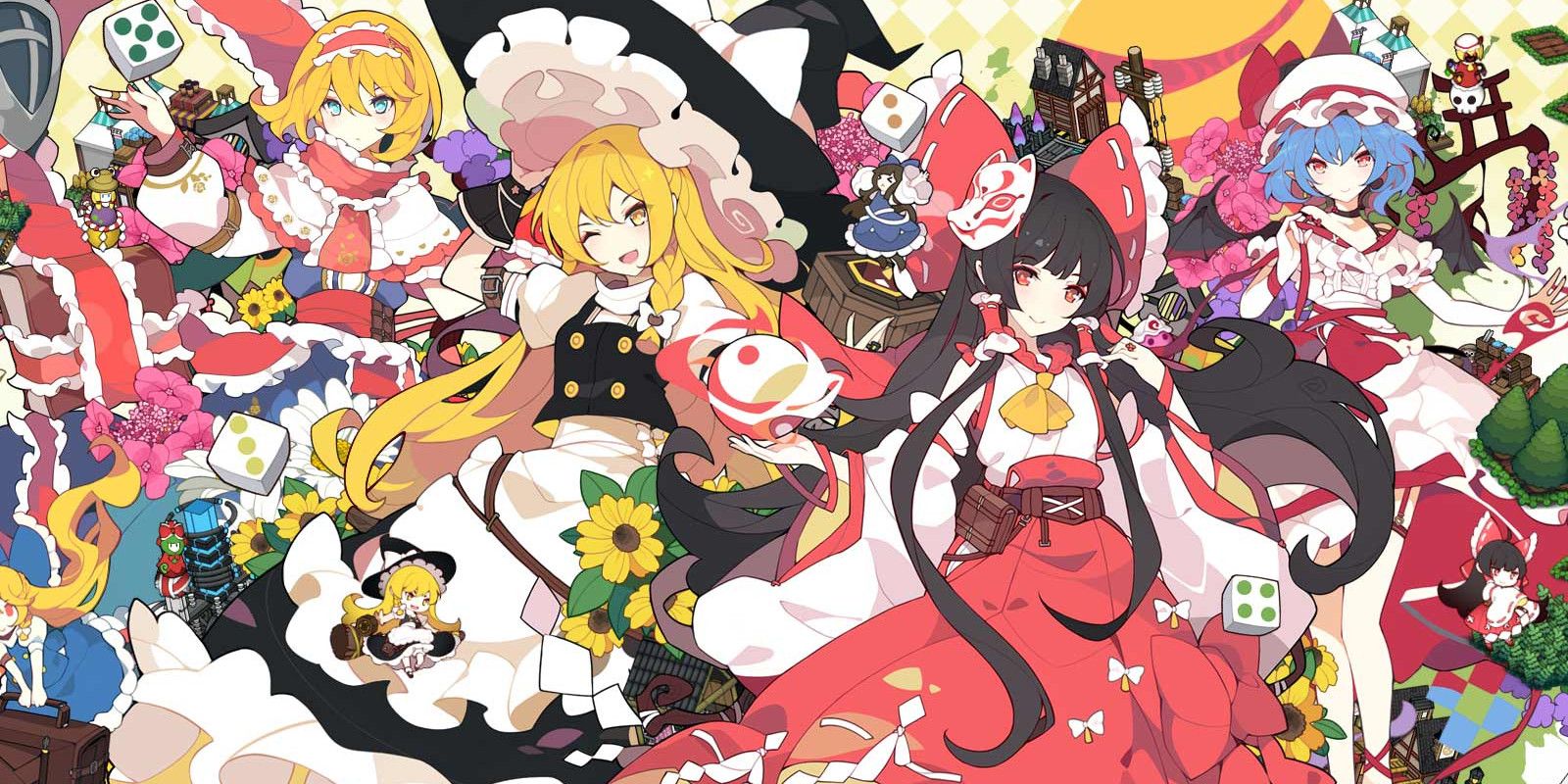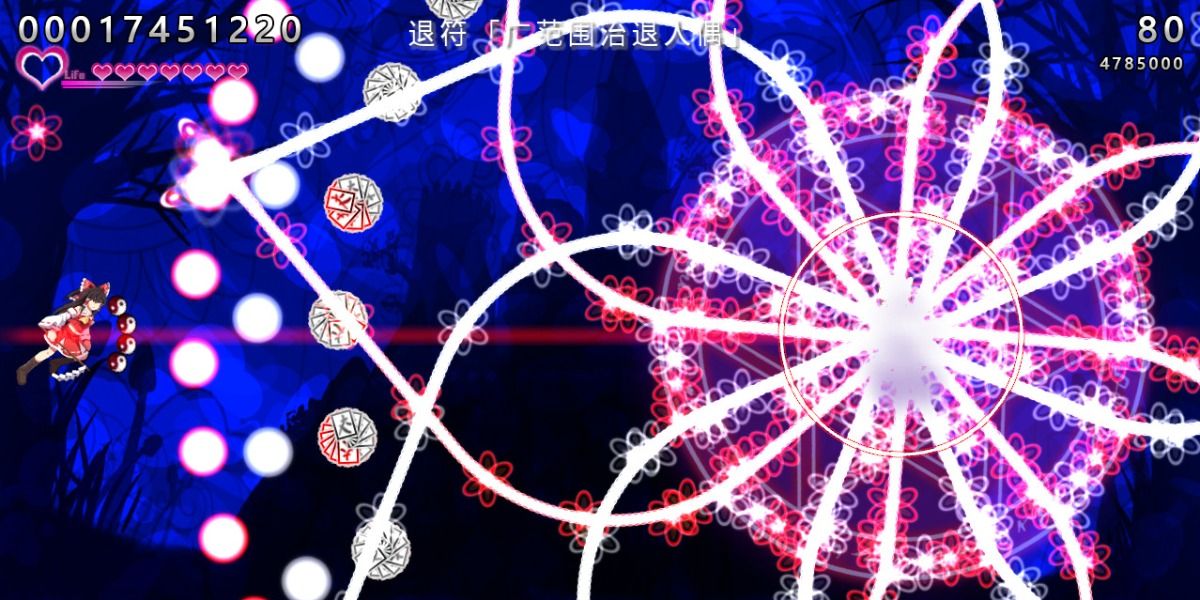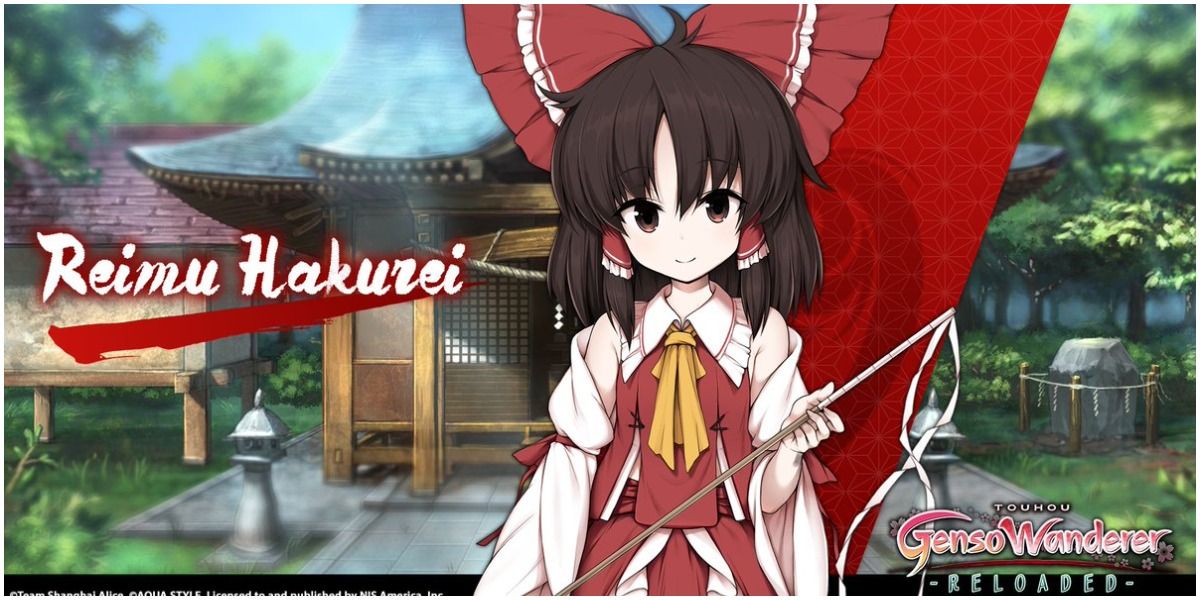Though it's still considered an indie franchise, the Touhou Project games have amassed countless fans all across the world. The franchise debuted back in 1997 and its most recent game, Touhou Gouyoku Ibun, released in October 2021. There's also a myriad of fan-made manga and artwork produced by the immense fandom. Despite its consistently growing underground popularity, there's yet to be an official Touhou anime.
The games' fantasy premise and multitude of cute and beloved characters would make Touhou the perfect franchise for an anime adaptation. Despite this, no major anime studio even seems to be considering bringing Gensokyo to life -- and it might all stem from the franchise's creator.
What Is Touhou Project and How Did It Get So Popular?
Touhou Project is a franchise of arcade-style shoot 'em up games, in the vain of retro classics such as Galaga. They're mainly in the sub-genre of "bullet hell," or "bullet curtain," where the enemy projectiles fill the screen and are borderline unavoidable. Contrasting this hellish difficulty is a cast of colorful female characters, many of whom have vast supernatural powers that allow them to fire their own long-range magical attacks. These leading ladies of Touhou reside in the world of Gensokyo, a mystical realm where all sorts of paranormal events transpire.
The main characters are the mystical shrine maiden Reimu Hakurei and the witch Marisa Kirisame, with others including the cryogenic fairy Cirno, rat-girl Nazrin and the vampiric Remilia Scarlet. Mythological creatures such as the Tengu and several gods also show up in the games. Outside of Reimu and Marisa, many of the others are merely bosses, though they've been playable in the numerous fighting game spinoffs. The plots are usually more comical than anything deep, though they arguably have much more story than typical "shmups."
With this huge cast of characters and a magical world for them to interact within, it's no wonder that fans have taken it upon themselves to expand the sparse story. Hakurei Shrine Reitaisai is an annual convention in Japan dedicated solely to Touhou, where many fans sell and trade fan-made art, crafts and doujinshi manga. There have even been fan-made animated Touhou works, many of which are based around remixes of the games' popular music. Despite all of this hype around an independent series, there's yet to be anything animated on a professional level.
Why Isn't There a Touhou Project Anime?
Touhou Project is the brainchild of a one-man army by the name of ZUN, who created the franchise in the 1990s while in college. ZUN is more than fine with fans taking the characters and doing what they will with them by way of indie doujinshi and other works. He also feels that the lack of definition for most of the characters in the games allows fans to flourish with this creativity, and he thus keeps them as blank of slates as possible.
ZUN had previously worked for video game company Taito, an experience he did not enjoy. Given this history with the mainstream game industry -- as well as his frustration at games having become easier and made to appeal to wider audiences over the years -- it's no wonder he keeps Touhou on such a tight leash. By allowing an official anime adaptation of Touhou to be produced, ZUN would have to give up some of that official control over his franchise, with any "mainstream" production likely becoming the face of the series going forward. Since he created Touhou to get away from his grievances with the big time gaming industry, he likely doesn't want it to become too corporate in any medium.
While this is definitely a disappointment for anime fans who want to see Touhou finally get its big break, staying underground presents a unique opportunity. The ever-growing fanbase will be able to make as many fanworks as they want, and these are deemed no less valid than the games themselves due to Zun's philosophy. In other words, these fan-animated videos count as the Touhou anime, and don't need any validation from the big boys. This also allows fanworks to dodge legal red tape that might travail fan-fic for other franchises. While the games themselves might be bullet hell, this lack of corporate studio oversight is creative heaven for Touhou fans.



